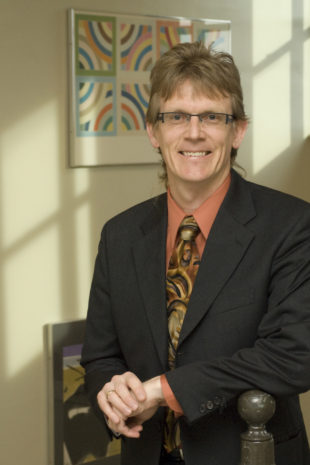Purdue Professor Says Our Economy Suffers When Talented International STEM Grads Are Forced to Leave
Date: July 21, 2016

Professor Gerhard Klimeck is a master of the Conte, a huge supercomputer based in Indiana. Rippling with copper wire, Conte is capable of running the sort of design simulations that are responsible for our smaller and sleeker iPhones. Klimeck works in the cutting-edge field of nanotechnology, but he grew up in the Steel Valley, a hardscrabble coal and steel hub in Germany’s Ruhr region. In 1988, Klimeck came to the United States for an exchange program at Purdue University. “It was a one-year adventure,” he says, but “I saw a huge opportunity at Purdue that I realized I couldn’t pursue in Germany.” So Klimeck never left. Although he’d come over on a J-1 visa, which requires holders to return home for at least two years after completing their training, Klimeck was able to get that requirement waived. It was an arduous process, but now he is a citizen.
Today, Klimeck has settled in West Lafayette, Indiana—where he’s working as both a professor of electrical and computer engineering and an entrepreneur. In the latter capacity, he helped to create and currently oversees nanohub.org, an online community that provides engineers and other academics with simulation software they can use to model nanotechnology. The site has over one million users annually and spun out a whole new technology and Purdue Business group entitled HUBzero. HUBzero powers over 40 other hubs and data sharing platforms. As such nanoHUB created 25 jobs for local software professionals, half of whom are American. “This is business creation inside Purdue,” Klimeck says, “It puts [the university] on a new playing field.”
Four years ago, Klimeck also founded a second firm, NEMOco, which focuses on marketing the software created in his research group to more commercial clients. Technology giants like Intel and Samsung work directly with NEMOco to study electron flow through their new devices. “All these business opportunities,” Klimeck says, “Come right back to Purdue,” Klimeck says he has been fortunate that the university is so supportive of work like his own. Purdue, he says, is “at the forefront of cyber infrastructure.” He couldn’t have done it without Purdue Discovery Park, an interdisciplinary research incubator, which has built the sort of strong network that helps researchers tap into coveted research grants in engineering.
While Klimeck is proud of what he has built, he believes that one major barrier has slowed the growth of his firm and HUBzero in recent years: the limitations of our country’s immigration system. With our current visa system, “it’s hard to attract and keep talent in Indiana,” he says. One major reason for this is that almost half of the STEM students receiving PhDs in the state are foreign-born, yet there is no clear path for these individuals to stay after graduation—particularly at small startups that may lack the resources to sponsor them for visas. In the years Klimeck has been at Purdue, only two of the 21 PhD students he helped to graduate have been Americans. The other 19 have faced uncertainty surrounding their visa status. “These researchers would gladly stay in Indiana,” Klimeck says, “but I don’t have the ability to sponsor them for a green card.” That represents a loss for Indiana’s economy. When such students leave, local businesses miss out on potential customers, and firms like NEMOco expand more slowly—hurting the service providers that work with them.
Klimeck estimates that each time a U.S.-trained STEM student from Purdue is forced to leave, half a million dollars in investment in that person’s training is essentially lost.
Klimeck has a long list of students he’s seen face real visa struggles. “One of my first PhD students was from Cyprus,” Klimeck remembers. “He had a job offer from Intel doing advanced device engineering.” But he couldn’t get the visa requirement that he return home for two years waived, so he went back to Europe and now teaches in England. “He’s lost,” Klimeck says. Another student from Pakistan was forced to leave. He went to Ireland and then settled in Australia. Klimeck also has one student who became a researcher at IBM—in India. “I even have a student who hasn’t seen his family for 15 years,” Klimeck recalls, because he’s worried about the arbitrariness of the visa system. All told, Klimeck has lost six of his 21 research assistants to visa issues.
Klimeck estimates that each time a U.S.-trained STEM student from Purdue is forced to leave, half a million dollars in investment in that person’s training is essentially lost. “It’s a waste of human capital,” he says. Like many academics and policymakers, he would like to see anyone getting a PhD or Master’s in a high-tech area receive a green card with his or her diploma.
Klimeck is not alone in his frustration. Klimeck says most of his professor friends at Purdue share his low opinion of our current immigration system. “We make these students’ lives harder unnecessarily,” he explains, “We are personally invested in these people.” Klimeck says it is incredibly hard to see students have to think about leaving the country they worked their whole lives to get to. It hurts him to see “some of them just settle and say they are not going to fight this.”
